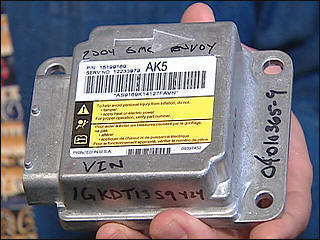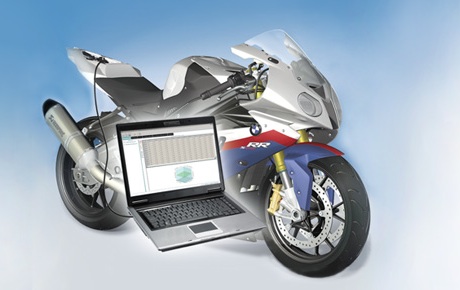Is your bike spying on you? If it has a data recorder, it could be recording information that could jeopardise your privacy and be used against you in a court of law.

On the positive side, it could also be used to prove your case against another motorist who crashed into you and, on a broader scale, improve the collection of vital crash data to enhance road and vehicle safety.
Most modern vehicles and some bikes have comprehensive data recorders. Some exotic sports bikes not only record speed but also throttle position, lean angles, brake application, revs, gear changes, lap times and more for track-day fanatics.
Even if you don’t have a data recorder but have a modern motorcycle with fly-by-wire throttle, the central computer can still record details such as top speed and terminal speed at the time of a crash. (It’s good advice to clear this occasionally!) Or maybe you just have a GPS. It can also record top speed as well as geographical position, both of which could theoretically be used to prosecute you for speeding offences, even if a front-on speed camera didn’t pick up your rear number plate.
The concern for some people is that this data could be seized by police or insurance companies and used against you in the event of a crash or major traffic offence as Australian law does not protect the privacy of this data.

Those guardians of personal privacy and freedom, the Yanks, are very concerned about the possibilities of this information being used against citizens. Minnesota Democrat Senator Amy Klobuchar wants to change the language of the Driver Privacy Act bill (S. 1925) to protect all information recorded by event data recorders installed on all “motor vehicles,” including motorcycles. Meanwhile, a similar bill in the House demands that “any data recorded on any event data recorder in an automobile or motorcycle shall be considered the property of the owner of the automobile or motorcycle.”
The way the current US bill is written, privacy is only granted for data the government “requires” to be collected. Currently the US government does not require “black boxes” on motorcycles, only passenger vehicles, trucks and buses.
Under current US law, insurance companies, police and even vehicle rental companies can access the data on the device and use it as evidence against the driver or owner in legal proceedings. Don’t think it can’t happen in Australia. Lawyers I spoke to have used “black box” data in their cases.
We have no privacy protection over this data and police can seek a subpoena to obtain the information. Insurance companies don’t have that power, but they could refuse to pay out on a claim if such data is withheld by the motorist. The data is actually “owned” by the vehicle manufacturer and they are the only ones who can decode it.
Tia Orton of DV Experts, an accident investigation company, wants more free access to the information for “the common good” of obtaining better data for accident analysis. She says vehicle manufacturers already access the data and use it to build safer vehicles.

She also claims police do a scant job of proper accident investigation, often leaving it up to insurance companies who will be biased in their assessment.
“We want access to the data because it will increase safety,” she says. “We have been collecting data in such an archaic way for so long and in the greater scheme of things, this is so important for saving lives. It angers me that people are so self-absorbed that they think the authorities are out to get them. People are generally good and doing the right thing and this data will actually prove that they are because a lot of the time people are doing the right thing. If you think about societal costs and hospital bills for health care it is important. Privacy is privacy, but if you are not doing anything wrong you don’t have anything to worry about.”


